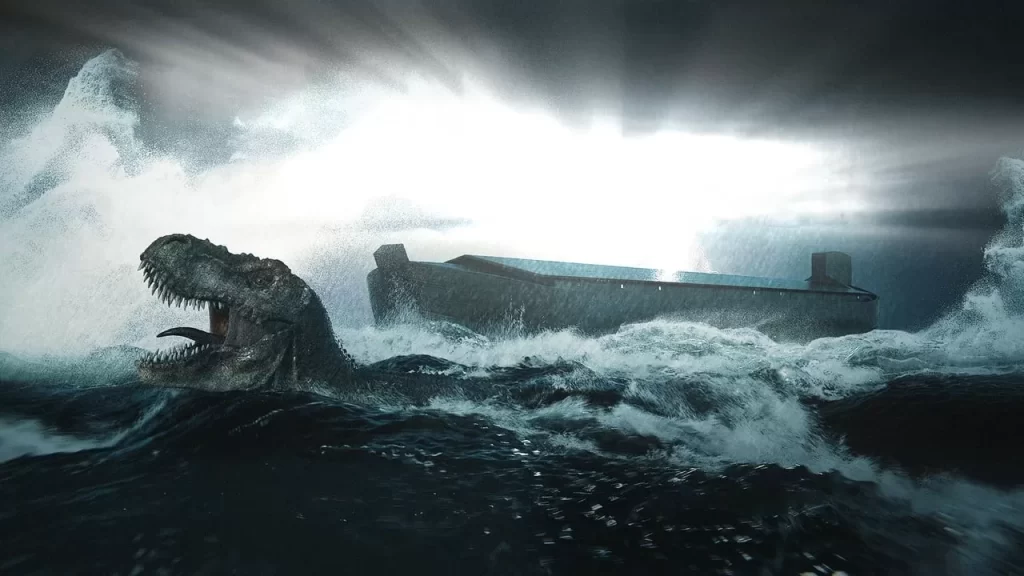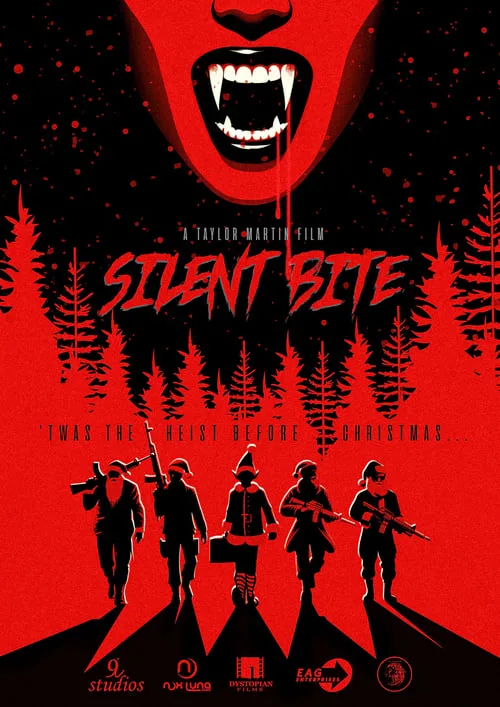“The Ark and the Darkness” is a 2024 documentary that delves into the narrative of Noah’s Ark, intertwining scientific evidence with a young Earth creationist perspective. This review aims to provide a balanced critique of the documentary, highlighting its strengths and weaknesses, and offering an overall rating.

The documentary intertwines scientific evidence to support a particular narrative of the Noahic account, rather than presenting a straightforward recounting of the story 1. It confidently presents its arguments but often fails to acknowledge differing viewpoints within the young Earth creationist community or the broader scientific community 2. This approach may alienate viewers who expect a more balanced exploration of the topic.
The film seems to have resonated well with its target audience, predominantly older viewers who were excited and anticipated its message 3. However, it represents a missed opportunity to engage a broader audience by sidelining critical analysis and scientific rigor in favor of a narratively convenient conclusion 4.
A significant portion of the documentary focuses on end times and judgment, which some viewers found repetitive and unnecessary 5. The final part of the film is dedicated to ‘witnessing’ to non-believers, which may not appeal to all viewers 6. The documentary also briefly presents a Dispensational view of the End Times and the Second Coming of Jesus Christ, which is more controversial and tangential to the movie’s central focus on the Great Flood 7.
The CGI and animations in the documentary are notably weak and lack a professional touch, likely due to budget constraints 8. Many of the animations appear as if they are underwater, which is both unnecessary and bothersome 9. Despite these shortcomings, the film attempts to use photorealistic techniques to enhance its visual appeal 10.
The documentary features information presented by various scientists from different disciplines, which is described as extraordinary 11. It uses the scientific method to explain the catastrophic event of Noah’s Flood, although the defense of a young Earth perspective is less comprehensive and convincing 12 13. The scholars discuss the stability of the Ark and its capacity to hold numerous animals, as well as post-flood geology 14 15.
Critics have pointed out that the documentary is heavily biased towards a young-age creationist viewpoint, often sidelining critical analysis and scientific rigor 16. It is seen as a film made by Christians for Christians, with skeptics likely remaining unconvinced 17. The arguments presented are relatively convincing and fascinating to those who already hold similar beliefs 18.
One of the film’s greatest strengths is its ability to present a well-researched and compelling case for the historical accuracy of Noah’s Ark. The expert commentary and visual effects add depth and authenticity to the narrative. The historical and scientific elements are well-researched and presented with compelling storytelling.However, the film may have some weaknesses. The pacing can be uneven at times, with certain scenes feeling rushed or overly dense with information. Additionally, some viewers may find the subject matter niche, limiting its appeal to a broader audience.
“The Ark and the Darkness” stands out in the documentary genre for its unique premise and historical significance. It shares similarities with films like “Genesis: Paradise Lost” and “Patterns of Evidence: Exodus,” which also explore the intersection of history, science, and religion. Ralph Strean’s direction ensures that the film maintains a distinct voice and style.
Based on the reviews and critiques, “The Ark and the Darkness” receives a mixed reception. While it succeeds in presenting a compelling narrative for its target audience, it falls short in providing a balanced and scientifically rigorous exploration of the Noahic account. The visual and technical aspects also leave much to be desired.
Frequently Asked Questions About “The Ark and the Darkness”
What is “The Ark and the Darkness” about?
“The Ark and the Darkness” is a documentary that explores the story of Noah’s Ark and the global flood, corroborated by scientific evidence across various disciplines.
Where can I watch “The Ark and the Darkness”?
You can stream “The Ark and the Darkness” on platforms like Apple TV+ and other streaming services. For the best streaming experience, visit ;iwatchonline.cc.
Who directed “The Ark and the Darkness”?
The film was directed by Ralph Strean.
Who are the main cast members of “The Ark and the Darkness”?
The main cast includes J. Randall Price, Andrew J. Fabich, Charles Jackson, and Andrew Snelling.
What genre is “The Ark and the Darkness”?
The film falls under the documentary genre.
Is “The Ark and the Darkness” a sequel?
No, “The Ark and the Darkness” is not a sequel; it is a standalone documentary.
What are some similar movies to “The Ark and the Darkness”?
If you enjoy “The Ark and the Darkness,” you might also like “Genesis: Paradise Lost” and “Patterns of Evidence: Exodus,” which explore similar themes of historical and scientific investigations into Biblical accounts.
Where can I find more information about “The Ark and the Darkness”?
For more details, you can visit the IMDb page or check out the Rotten Tomatoes page.
Is “The Ark and the Darkness” worth watching?
Absolutely! With its blend of compelling storytelling, expert commentary, and stunning visuals, “The Ark and the Darkness” offers a unique and engaging viewing experience.Factual Table
| Aspect | Details |
|---|---|
| Title | The Ark and the Darkness |
| Genre | Documentary |
| Directed by | Ralph Strean |
| Main Cast | J. Randall Price, Andrew J. Fabich, Charles Jackson, Andrew Snelling |
| Original Network | N/A |
| Number of Seasons | N/A |
| First Released | March 20, 2024 |
| Streaming Platform | Apple TV+ |
For the best streaming experience, visit iwatchonline.cc



